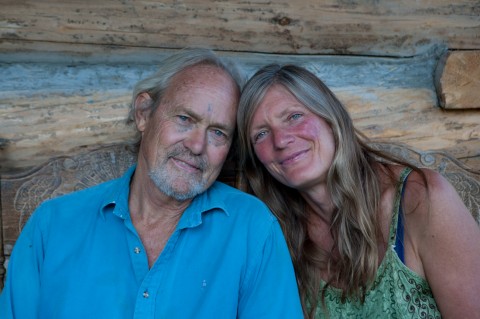posted 11 years ago
Glenn, when I saw your first post late yesterday, I meant to give it an apple, but I was too burnt out to write a cogent response.
The answer, in a nutshell, is that you need to revert to the skill set that people had before the Industrial Revolution. Back then, people were generalists and not specialists. Oh sure, a man could practice a building trade and be mostly involved with house building skills (all of them, not just as a drywaller moving from one house to the next), but he also had his own homestead to take care of and that might require working in the garden, harvesting and putting up food, cutting firewood for the winter, etc. He didn't work a 40-hour week for a building contractor and then go out and pay for all of his other needs with the money he earned.
Besides writing the Declaration of Independence, Thomas Jefferson was a planter, and architect, a writer, an ambassador -- the man had many talents, a varied skill set that could be the template for the self-sufficient life. Indeed, to be successful in the pre-Revolutionary Colonies, you had to have a varied skill set and know-how to turn virgin forest into a homestead that would sustainably support people.
The Industrial Revolution, and its progeny of globalization, free trade, and growth based on extraction of fossil fuels has spawned millions of "jobs" that are interdependent and have no sustainability. A truck driver hauling gasoline to filling stations may get a steady paycheck from the company that employs him, but he may let other talents he has atrophy. Were his job to suddenly go away and he had to survive by growing his own potatoes and turnips and cutting his own firewood, he would be in a sad predicament. The same with a warehouse worker who spends his whole day taking boxes out of racks and moving them to conveyors.
The problem with being a generalist is that for most of the things you are doing, someone else that you know does that task better. There may be only one or two things where you are the expert and people actually seek you out to show them how. There are a couple of ways you can deal with that: (1) learn to accept that your work is going to have defects or (2) arrange a barter with someone who can knock it out better than you can.
Welcome to Permies. I hope this thread can be more than just a skills list. After all, sometimes you don't know what is needed until the occasion arises. The skills you need are those that keep you fed, clothed and housed in a moderate amount of comfort with a minimal amount of resources.









 1
1


















 1
1






















